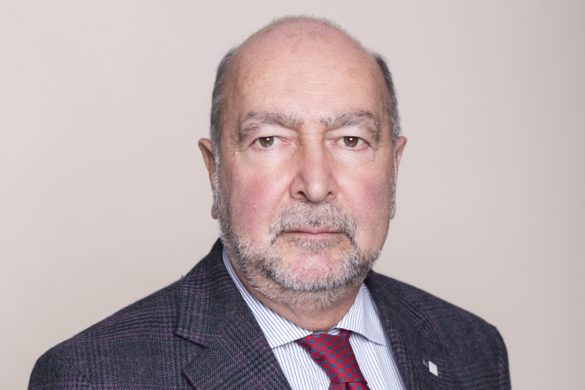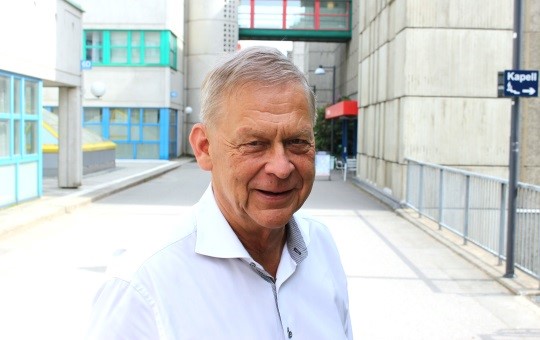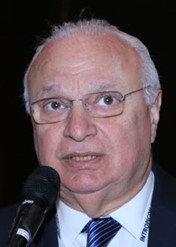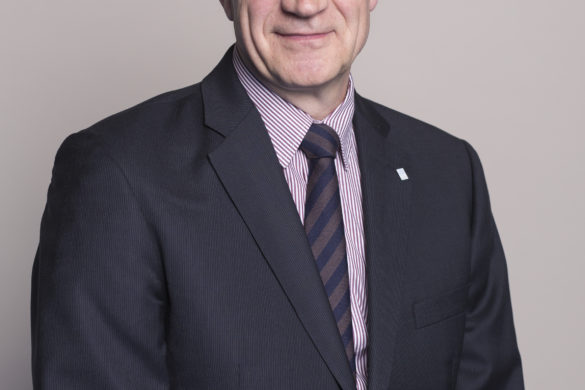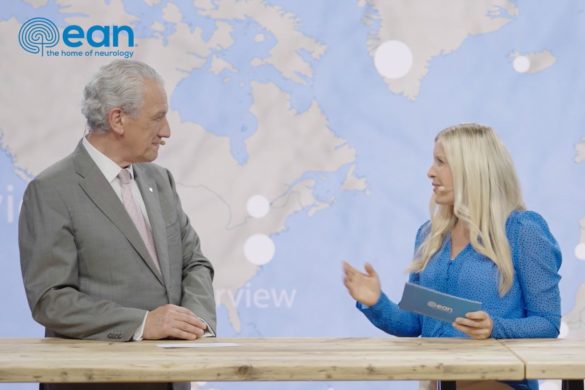As in the previous year, Neuropenews asked EAN committee members, panel chairs, speakers etc. which session one should not miss at the upcoming congress in Berlin, June 2015. Please find their answers below!
Benedikt Schoser, speaker at Symposium 3 “Modern molecular genetics in clinical myology”
Symposium 3: “Modern molecular genetics in clinical myology”, Saturday, June 20, 08:30-10:30
In this session, you will hear about latest news in clinical myology. The session will start with a landmark paper of Prof. Argov on contemporary epidemiology and classification in myology. As one of the most frequent conditions in adult myology, the multisystem disorder myotonic dystrophy is at the edge of treatment in 2015. The talk, given by Prof. Schoser, will update clinical details by linking this to newest molecular genetic findings. Finally, he will sum-up the current treatment strategies including the most topical molecular therapy approach. The third talk, given by Prof. Angelini, will cover the most prevalent neuromuscular disorders, the dystrophinopathies types Becker and Duchenne. Here, this state-of-the-art presentation will summarize former therapeutical approaches from steroids to present molecular therapy. Finally, the symposium will close by an talk given by Prof. Straub on the our current understanding and value of next generation sequencing in diagnosing neuromuscular disorders. After listening to all four talks, you may be hopefully enlightened on what is ongoing in the hot field of clinical myology in 2015. So, don´t miss this session!
Per Hansson, Member of the Subspecialty Scientific Panel Pain
Focused Workshop 6: “Neurogenetics: who, when and which test?”, Saturday, June 20, 11:00-12:30
I will not miss this session.
Klaus V. Toyka, Member of the Subspecialty Scientific Panels Neuropathis, General Neurology, and Muscle Disorders
Symposium 3: “Modern molecular genetics in clinical myology”, Saturday, June 20, 08:30-10:30
Focused Workshop 17: “Non-coding RNA in multiple sclerosis – from pathogenesis to therapy”, Monday, June 22, 11:00-12:30
In these two sessions novel insights into the role of genetics and specifically of RNA will be presented in paradigmatic disorders like MS and Muscle disorders. This knowledge may provide new insights beyond the more traditional paths of research.
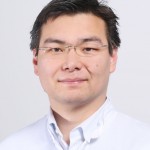 Johann Sellner, Member of the Subspecialty Scientific Panel Infectious diseases, EAYNT Representative for the Subspecialty Scientific Panel Multiple Sclerosis
Johann Sellner, Member of the Subspecialty Scientific Panel Infectious diseases, EAYNT Representative for the Subspecialty Scientific Panel Multiple Sclerosis
Tournament Clinical: Sunday, June 21, 14:45-16:15 Hall A2; Basic: Monday, June 22, 14:45-16:15 Hall A2
I will not miss the two tournament sessions (clinical and basic science, respectively) where junior colleagues present their scientific work and compete for the Uschi Tschabitscher prize. These sessions are an excellent opportunity to watch how Europe’s most promising and talented researchers discuss their recent breakthroughs and to gain insight to progress in various fields of neurology.
Vincenzo Donadio, Member of the Subspecialty Scientific Panels Pain and Clinical neurophysiology
Plenary Symposium: “Hot topics in neurological sciences”, Sunday, June 21, 08:30-10:30
In this session important topics will be treated. Specifically diagnostic and therapeutic perspective of frequent disorders such as Sclerosis Multiple, Basal Ganglia dysfunctions, Neurodegenerative diseases and epilepsy will be discussed.
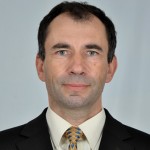 Vitalie Lisnic, President of the Moldovan Scientific Society of Neurology, Member of the EAN Education Committee
Vitalie Lisnic, President of the Moldovan Scientific Society of Neurology, Member of the EAN Education Committee
Plenary Symposium: “Hot topics in neurological sciences”, Sunday, June 21, 08:30-10:30
I will not miss the Plenary Symposium “Hot topics in neurological sciences”, chaired by the President of EAN, professor Günther Deuschl and representative of MDS-ES, professor Wolfgang H. Oertel which will address the last achievements in the field of Multiple Sclerosis, Movement Disorders, neurodegenerative diseases and epilepsy.
Professor Xavier Montalban from Barcelona will speak about the ongoing translational research for biomarkers in Multiple Sclerosis. Jens Volkmann from Würzburg will cover the concept of hypo- and hyperdopaminergic dysfunction of the basal ganglia. Another interesting presentation will be on immunization strategies for neurodegenerative disease, presented by Bruno Dubois from Paris. The last talk will be given by Annamaria Vezzani from Milan on biomarkers for epilepsy.
Focused Workshop 14: “Update on neurocritical care of neuromuscular disorders”, Sunday, June 21, 11:00-12:30
For those interested in neuromuscular pathology will be fruitful to attend the Focused Workshop 14 “Update on neurocritical care of neuromuscular disorders”. This workshop focuses on some of the main categories of neuromuscular disease seen in the ICU with an emphasis on new developments in treatable disease. The attendees will receive an overview of new diagnostic and treatment concepts, guidelines for management of vasculitic neuropathy, Guillain-Barré syndrome, inflammatory muscle diseases and ICU acquired weakness.
Mohamed Elwan, Speaker at SPS “Mediterranean session – Jonitly organised by EAN and PAUNS: Post-Stroke Sequelae”
Special Session: “Mediterranean session – Jointly organised by EAN and PAUNS (Pan Arab Union of Neurological Societies): Post-Stroke Sequelae”, Tuesday, June 23, 10:30-12:00
Stroke is one of the most important causes of disability all over the world. Usually we miss the post stroke sequelae. So early diagnosis and treatment of these sequelae is very important for proper management of stroke patients.
Eduardo Nobile-Orazio, Member of the Subspecialty Scientific Panel Neuropathies
Teaching Course 3: “New advances in the treatment of immune mediated neuropathies”, Sunday, June 20, 14:45-18:15
This year is quite difficult to decide which session I would not miss since there are a few excellent Symposia, Teaching Courses and Focused workshops that it is really difficult to miss. Among them, I refer in particular to the Symposia on Multiple Sclerosis (No.3), the Teaching Courses (No. 13) on Parkinson disease and on therapies of neurological diseases (TC 2 and 23). I will not miss at all however the Teaching Course 3 on new advances in the treatment of immune mediated neuropathies. This course has been prepared in conjunction with the Peripheral Nerve Society and will address all the new therapeutic strategies in acute and chronic immune mediated neuropathies. This field has seen in the last 10 years the appearance of a large number of controlled trials, guidelines and Cochrane reviews that really changed the therapeutic approach and the prognosis of the patients with these diseases.
Abhijit Chaudhuri, Member of the Subspecialty Scientific Panel Infectious diseases
Plenary Symposium: “Hot topics in neurological sciences”, Sunday, June 21, 08:30-10:30
This is an exciting session that looks at the future practice of clinical neurosciences. The chosen themes are innovative and educational, and the four lectures develop the current discussions on translational research of biomarkers in epilepsy and multiple sclerosis, immunization for neurodegenerative disorders and dopaminergic dysregulation in basal ganglia. The hot topic plenary session makes a great start to the first EAN congress and is forward-thinking. Highly recommended and not to be missed.
Uwe Schlegel, Member at the Subspecialty Scientific Panel Neuro-oncology
Symposium 8: “Infections of the central nervous system: recent advances”, Tuesday, June 24, 08:00-10:00
This is my favourite session due to the changing environment with respect to infectious diseases.
Jose-Manuel Moltó Jordà
Plenary Symposium: “Hot topics in neurological science”, Sunday, June 21, 08:30-10:30
Four exciting topics presented by great experts in their fields. Facts that may change neurology in the very next few years. Translational research is key for understanding such a complex entity as MS and Dr X. Montalban is a great expert in research development. Understanding how the basal ganglia work is crucial for treating better Parkinson’s disease and understanding and designing treatment for the rest of movement disorders. Immunization therapy has long been claimed as the promising future in dementia treatment but unfortunately its development has had to meet important drawbacks. However it is nice to hear it is still on the move. Last but not least, it is important to learn if we shall be able to enjoy some biomarker which could help in diagnosing epilepsy, something which is sometimes a very hard task. These are my reasons.
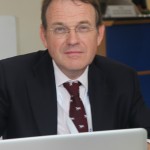 John Wokke, Member of the Subspecialty Scientific Panel ALS and frontotemporal dementia, Institutional Delegate of the Netherlands Society of Neurology
John Wokke, Member of the Subspecialty Scientific Panel ALS and frontotemporal dementia, Institutional Delegate of the Netherlands Society of Neurology
Symposium 4: “Preclinical Alzheimer’s disease”, Monday, June 22, 08:30-10:30
As the population of Europe ages rapidly, cognitive functions of many persons may decline. This will have huge consequences for the affected individuals and their families but also for whole societies and countries. This problem represents a challenge for neurologists, as early diagnosis will be needed to counteract consequences and to develop creative and novel treatments, interventions and care programmes. We need to take up the gauntlet and show society what neurology is worth. The symposium organized by professors Scheltens and Schmidt will help to define the playing field. Residents and neurologists can learn what is important and what new. To my opinion this will be a stimulating symposium. I strongly advocate my residents to attend.




